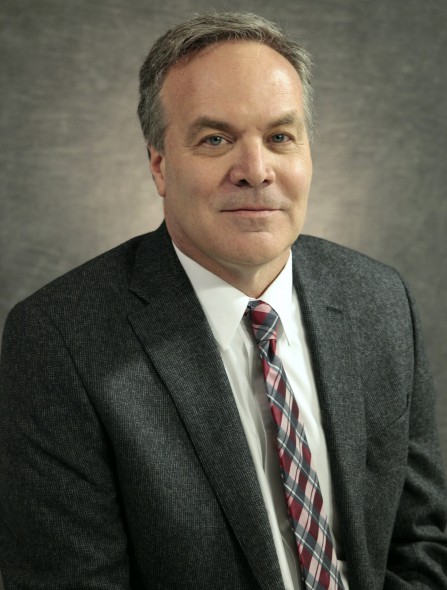Errors Embarrass Journal Sentinel
Washington Post finds problems in James Causey’s work, which JS editors try to hide.
To begin with, Washington Post media critic Erik Wemple caught some problems with columns by the Journal Sentinel’s James Causey. As Wemple writes:
“The Milwaukee Journal Sentinel pulled a sneaky maneuver this summer. In mid-July it published a column on race relations by columnist James E. Causey containing the incorrect claim that the unemployment rate for white men in 1954 was zilch. It appeared that this fanciful statistic had been sourced from a website named YourBlackWorld.net.
“Instead of fixing the column and adding a correction, the Milwaukee Journal Sentinel disappeared the entire thing. It never showed up in print, and the column’s link dead-ended. Then, after this blog inquired about the situation, it resurfaced the piece, this time with a correction.”
Wemple went on to note other problems with Causey’s twice-weekly column, including one on the Flint water crisis that borrowed language from a CNN story. A later version of the story, after JS editors jumped on it, changed the language and noted that Causey “inaccurately attributed information.. and inadequately attributed other information” and for good measure, “inaccurately described a quotation by Michigan Gov. Rick Snyder.”
“Two other Causey columns also contain headlining corrections, one for poor sourcing and the other for poor attribution and crediting,” Wemple noted.
When asked for comment by Wemple, Milwaukee Journal Sentinel Editor George Stanley told him the newspaper addressed these problems “prior to any outside inquiry.”
But as Wemple makes clear, the newspaper’s way of handling this was to purge the column with the bogus statistic on white unemployment, only to allow its reappearance after Wemple made his inquiry. “The Journal Sentinel complied with all the ethics of Web publishing — or at least those that were in place around 1998,” Wemple drolly notes. “By current standards, this all amounts to a fast one: When a piece of content has an error — especially a serious one — it should be noted prominently online, before someone asks about it.”
Wemple points to another column by Causey on the need for diversity in the jury box which appears to lift, nearly verbatim, a graph from Louisville’s WDRB.com. Wemple asked Stanley about that column back on August 19 and has yet to get a response, the Post columnist tells me.
On a newspaper whose only regular political columnist is Republican lackey Christian Schneider, Causey (who ranges beyond politics) has been a welcome voice. As an African American who grew up in the city and who lives just a mile from where violent protests erupted in the Sherman Park neighborhood, he brings an interesting — and much needed — perspective to the news. Wemple praised Causey for writing a “compelling” column on the violence in Milwaukee and the Poynter Institute took favorable note of the the piece as well. Some of the attribution problems in Causey’s work Wemple found strike me as minor, but the pattern is disturbing.
Perhaps more disturbing is the newspaper’s attempt to hide one of those columns. Nor is the first time that has happened. Back in 2012 Schneider wrote a column for the Journal Sentinel that published a false accusation by Madison resident Kyle Wood that he was the victim of a violent political attack and that he had been threatened by Democratic congressional candidate Mark Pocan’s husband Phil Frank. None of it was true, and Schneider was left with egg on his face, but as the controversy over this grew, his column was purged. Schneider said he made the decision to take the column down, but JS editorial page editor David Haynes told me he approved of the decision.
In Causey’s case, it looks like he’s in the dog house. His column is now on hiatus, and then some. Stanley told Wemple that Causey is now assigned to a “special in-depth reporting project” that will stretch into next year. I can’t recall a columnist ever being transferred for half a year (even a one-week disappearance usually brings an explanation that a regular columnist is on vacation), which suggests the column has been killed. Via email, however, Stanley told me that’s not the case: “He’s working on a special report. A story only he can tell.”
Wemple tells me that one reason he wrote about problems with Causey’s column was the way the newspaper handled it. “It looked to me like the behavior of the organization was more serious than what the writer did. It seemed like the newspaper was taking extreme measures to sweep this under the rug.”
That, too, might be a story only Causey could tell.
Correction: This story originally referred to Phil Frank as Mark Pocan’s gay partner. In fact, they have been married since 2006. We apologize for the error.
Murphy's Law
-
National Media Discovers Mayor Johnson
 Jul 16th, 2024 by Bruce Murphy
Jul 16th, 2024 by Bruce Murphy
-
Milwaukee Arts Groups in Big Trouble
 Jul 10th, 2024 by Bruce Murphy
Jul 10th, 2024 by Bruce Murphy
-
The Plague of Rising Health Care Costs
 Jul 8th, 2024 by Bruce Murphy
Jul 8th, 2024 by Bruce Murphy
The Press
-
A New State “Progressive” Publication
 Jul 16th, 2019 by Bruce Murphy
Jul 16th, 2019 by Bruce Murphy
-
Journal Sentinel’s Post-Gannett Decline
 Nov 21st, 2017 by Bruce Murphy
Nov 21st, 2017 by Bruce Murphy
-
The Legacy of Eric Von
 Jun 23rd, 2017 by Amanda Maniscalco
Jun 23rd, 2017 by Amanda Maniscalco
























Wow weird. I read the Wash Post as much as possible and like Wemple’s blog, but I missed this. They do seem like minor errors due to laziness more than anything else, but the volume of them is disconcerting, as is the paper’s attempt to squash it quietly. I like Causey and agree with Bruce that he brings a much needed voice to the paper.
“Schneider said he made the decision to take the column down, but JS editorial page editor David Haynes told me he approved of the decision.”
So they agreed to take a completely false story down? There was no decision to be made on this matter.
I suppose the best way to deal with a story with an inaccurate and flawed premise is to just leave it up and change some words to make appear as if there were no errors in the first place (i.e, that the subject of the article is a fundamentalist Christian.):
http://urbanmilwaukee.com/2015/05/14/murphys-law-the-disappearance-of-dan-bice/
Tom, the proper protocol would be to keep the story link active and replace the story itself–or, in this case, the blog post–with a note explaining that the previously published version was erroneous and thus deleted.
When I ran my own blog, unconnected to any Professional Media Outlet, that’s what I did, out of an appropriate sense of journalistic ethics. I also did other obvious things to show when I made a mistake, like striking-through the bad information and following it immediately with the correct info, often with a note appended. Note that I never went to J-School, unlike, presumably, Haynes and Stanley.
What Schneider and the JS did, as they did with the disappearing-reappearing Causey post, is sweep their error under the rug rather than admit a mistake was even made. Lots of people linked to Schneider’s post–I remember it well!–either to celebrate the story (conservatives) or claim it was false (liberals, other thinking humans). That those links suddenly started to go to a 404 page reflects badly both on the JS and, by extension, bloggers and news outlets linking to it, as if those people linking in good faith had made the mistake when it was the JS’s error.
Tom, even if every last word in Causey’s piece was false, just taking it down and allowing those following the link to encounter nothing but a 404 error is a very bad idea.
You seem to be forgetting that in the digital era, nearly everything published online is likely to have a link TO it from another site.
If there’s nothing but a 404, anyone reading a piece with with links to the original article would remain the dark: “Oh – this page is gone now, but this other article links to it, so I guess it’s true.”
But even if every last word were false, and even if the JS put up a mea culpa explaining this fact, putting such explanation at the same link is far more journalistically responsible in the digital age. Again, we take our hypothetical reader of another online piece that links to this article: now, such a reader will know that, oops, the source is incorrect and not valid.
Cover-ups and disappearing acts are never ethical.
“In Causey’s case, it looks like he’s in the dog house. His column is now on hiatus, and then some. Stanley told Wemple that Causey is now assigned to a “special in-depth reporting project” that will stretch into next year. I can’t recall a columnist ever being transferred for half a year (even a one-week disappearance usually brings an explanation that a regular columnist is on vacation), which suggests the column has been killed.”
This is all conjecture. I know about the piece he’s working on–it’s going to be good. Also, this is not a columnist issue, this is an editor issue. With the volume of writing reporters/columnists have to put out given the buyouts and the wearing of multiple hats, they rely on editors more than ever. Also, pretending an error never existed by removing a story is also on the editors. Let’s keep Causey (he’s a gem), this is on the editors.
I wonder of the Washington Post is nearly as diligent in its critique of Christian Schneider’s columns. I bet it is not.
Newspapers always had to issue retractions since the ink was already dry. Now, when there’s no more ink, other tools have to fill it’s place: https://archive.org/web/
I browsed the snapshots of the JS domain, but it didn’t have this particular article. Seems that they’ll accept any URL as input for indexing:
https://web.archive.org/save/...URL...A bot specifically crawling all the JS has to offer and submitting to the archive could increase the accountability here.PS> I’m not the same Rich as that wack-job who took over the “Legislature Resists Background Checks For Guns” article’s comment section
What this article ignores is that for the last 25 years The Milwaukee Journal Sentinel has been one of the few publications that has openly and with grace and defiance reported police misconduct in a way that set the gold standard for all other publications. For example—http://archive.jsonline.com/watchdog/131554703.html
Mr. Causey and the extraordinary staff at MJS continue to bring us the unpopular, the sad and the outrage in simple subject-verb-object sentences– which break the heart and engage our passions so that common ground can be found in a city with such enormous potential and where its leadership is finally listening and.where so many precious lives have been lost. See.http://preciouslivesproject.org/
Thank you in advance for reading this comment
Robin Shellow
http://www.theshellowgroup.com.
Expect embarrassment to increase at the Journal Sentinel in coming years. With Gannett at the helm, attention to detail is not a priority, nor is an emphasis on fact checking and copy editing. My understanding is that Gannett agreed to make no newsroom cuts in the first year of ownership. When they do start making those cuts, sending local jobs to their distant hubs (and it’s almost certain they will, based on Gannett’s history at other news outlets), the product will get worse. The size of the staff list the JS now has is an anomaly in Gannett’s modern media landscape. http://www.jsonline.com/contact/staff/
It’s the Milwaukee Journal Sentinel..nothing new. Typical liberal biased press afraid to admit an error.
The trio that does The Milwaukee Record’s weekly podcast had interesting insights about this JS issue, including the questionable wisdom of sidelining the only African American columnist on the the paper at a crucial time in Milwaukee for race relations and other pressing civic issues. Causey indeed may be working on an important special project but the timing/optics are not good for the JS.
http://milwaukeerecord.com/podcast/disappearing-journal-sentinel-columns-strip-club-sagas-pokemon-go/